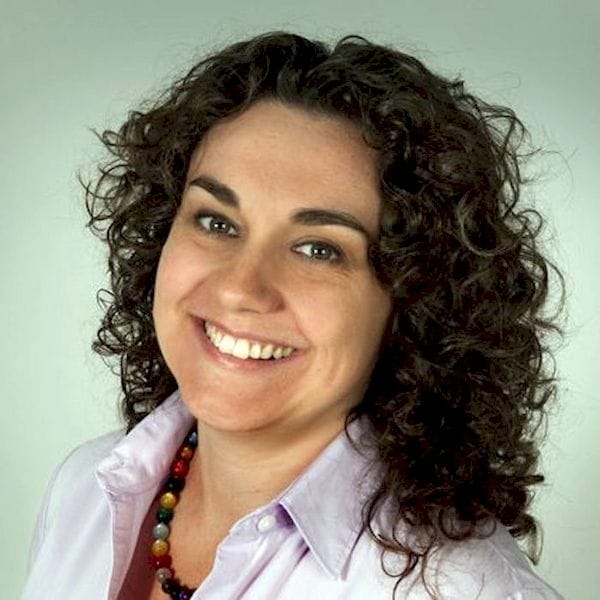![Natalie Rudolph {Source: Women in 3D Printing]](https://fabbaloo.com/wp-content/uploads/2020/05/image-asset_img_5eb09dc87cb00.jpg)
Natalie Rudolph is the Director of Material & Process development at AREVO, Inc.
Natalie received her diploma (2004) in Textile Engineering from the University of Applied Sciences Hof, Germany, and her doctorate in Mechanical Engineering, specializing in Polymer Engineering, from the University of Erlangen-Nuremberg. Her dissertation on “Compression Induced Solidification (CIS) of Amorphous Thermoplastics” was awarded with the Brose Award, as the best PhD Thesis from the German Scientific Alliance of Polymer Technology.
Her two-year Post-Doc was spent at the Polymer Engineering Center at the University of Wisconsin-Madison, followed by a position as Division Head at the Fraunhofer Institute of Chemical Technology in Augsburg, and lecturer at the Technical University Munich, Germany.
Most recently she was an Assistant Professor in the Department of Mechanical Engineering at the University of Wisconsin-Madison, where she also held the position as Associate Director of the Polymer Engineering Center.
For over 8 years, Rudolph’s research has focused on additive composite manufacturing for high volume/high precision applications. She co-authored three Hanser Publishers Books: “German Plastics Handbook” (2013), “Polymer Rheology” (2015), and “Understanding Plastic Recycling” (2017). She is one of the recipients of the 2015 Outstanding Young Manufacturing Engineers award.
Nora Toure: Natalie, could you let us know about your background and what brought you to 3D printing in the first place?
Natalie Rudolph: I am a textile engineer as well as a plastics engineer by training. This seems to be a great combination for what I do now, but I have to admit that I didn’t really seek out 3D printing in the beginning; rather it found me.
First, in 2006, my PhD advisor decided to add Additive Manufacturing as a key research area and I gained my first experience with Selective Laser Sintering of nylon powders. I was fascinated by the design freedom and the complexity of the producible geometries. We played around with the machines and added all kinds of fun parts to the builds – in addition to test specimens. I still have my tiny snowflakes and Christmas tree ornaments… together with the continued fascination for this process!
Later, at the Fraunhofer Institute, we had a composite additive manufacturing technology among our core processes, which I worked with extensively. It was and is very powerful, but I was always frustrated by the amount of manual pre-processing, adjustment of the process and post-processing was needed.
Three years later, when I started my own research group as an assistant professor at the University of Wisconsin-Madison, I focused my research exclusively on 3D printing of composites and I put all my ideas for improvements into my research questions. One and a half years ago, I realized that AREVO, Inc was working on a very similar technology with the same vision.
However, AREVO made much faster progress due to their interdisciplinary focus on software, machine, material, and process development instead of just the one sided approach I was always frustrated by in my earlier career. Therefore, I decided to join their team to have a bigger and also faster impact on the industry… and I am still enjoying the start-up life!
Read the rest at Women in 3D Printing











Elizabeth C. Engele (Lizzy) is a designer for social good, and a founder of MakerGirl.